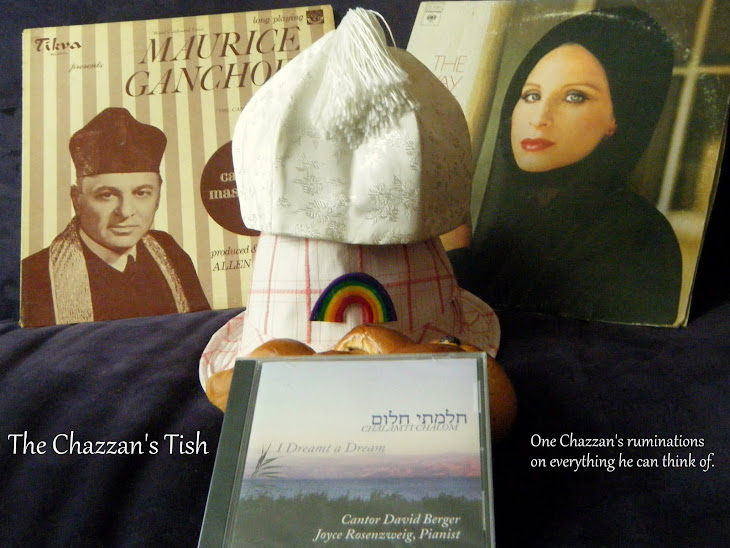Download Cantor David Berger - Bishivah Shel Ma'alah
I know that I'm still not ready. There just isn't time. I haven't asked for forgiveness from a number of people, and I haven't totally come clean with God. Some years you can walk into Yom Kippur feeling great about having really wiped your own slate clean - this year I'm praying that if I make a good effort, God will come and meet me half way.
I've been attracted to Isaiah 59 this week.
Here's how it starts:
1 No, Adonai's arm is not too short to save,Isaiah is totally right - it can really feel like the things that I do wrong stand there in front of me. Just when I feel like I want to call on God's help to cleanse me, I face a barrier of my own issues. I get distracted, annoyed, unfocused and unproductive in my spirituality. Breaking through can be really difficult.
or God's ear too dull to hear.
2 But your iniquities have been a barrier
between your and your God,
your sins have hidden God's face from hearing you.
Which is why we need Yom Kippur to remind us that it is possible to regain access to God's face. We can, through the magic of this day, get past our blockages and make our prayers acceptable before God - we can be heard.
Our tradition knows that a lot of us aren't going to feel like we have earned the right to be forgiven by God when we stand and hear the Kol Nidre. Despite the 40 days of preparation (starting with Rosh Chodesh Elul), we still feel like sinners.
For that reason, as we "convene the court" on Kol Nidre - and prepare ourselves for the (very legalistic) release of vows we recite a sort of strange sentence three times.
Bishivah shel ma'alah
Uvishivah shel matah,
Al da'at hamakom
v'al da'at hakahal.
Anu matirin l'hitpaleil im ha'avaryanim.
By the authority of the heavenly courtDownload Cantor David Berger - Bishivah Shel Ma'alah
And by the authority of the earthly court,
With the consent of the Omnipresent
And with the consent of this congregation,
We declare it permissible to pray with those who have sinned.
Rabbi Joseph Soloveitchik (one of the most important figures in modern Orthodoxy) comments:
"The communal atonement effected by the very day of Yom Kippur is compromised if any members of the Jewish people are excluded. We therefore make this declaration, explicitly including among the congregation even those who have committed the most serious sins" (Boston Lecture, September 20th, 1969).
All of us have the right to be there - and all of us have the right for Yom Kippur to work its magic for us. The wall of sins that stand before us will fall, if we allow ourselves to look to the other side. Kol Nidre cannot be recited until we make it clear that no one can be excluded, and no one should exclude themselves.
Sometimes this vitally important line gets passed over - but I invite you to hear it calling to you this Friday night. Indeed, let's just extend this declaration for the entire year. Whoever we are, and whatever we have done or not done, we, together with God, declare that we can all pray together.
Back to Isaiah 59 for just a minute - after a long chapter of divine rebuke for all the bad things we've done comes one of my favorite passages - and it is too good not to share.
And this shall by My covenant with them, said Adonai:I pray that this year we all break through our walls and take our place in the community - that we bring ourselves to the hard task of T'shuvah with a new openness and strength. And I pray that, as Isaiah promises, our work will remind us of God's words which are with us upon our spirits and in our mouths - forever.
My spirit, which is upon you,
and the words which I have placed in your mouth,
shall not be absent from your mouth,
nor from the mouth of your children,
nor from the mouth of your childrens' children -
Said Adonai -
from now on, for all time.
G'mar Chatimah Tovah - May you be inscribed for a good and sweet year.
The Chazzan



